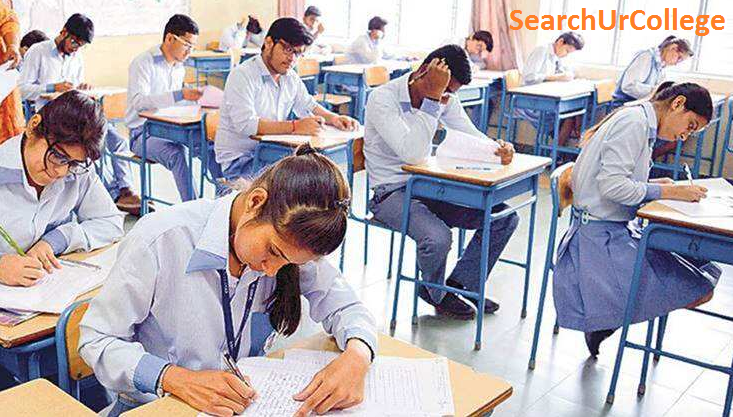
CBSE Board 12th Exam; CBSE (Central Board of Secondary Education) conducts the Class 12th exam for students in its affiliated schools. The Class 12th exam is an important milestone in a student’s academic journey as it serves as a gateway for higher education opportunities.
The CBSE Class 12th exam covers a wide range of subjects including Mathematics, Physics, Chemistry, Biology, English, Hindi, History, Political Science, Geography, Economics, Business Studies, Accountancy, and many more. The syllabus is designed to impart students with in-depth knowledge in various subjects, preparing them for higher education and career prospects.
The CBSE Class 12th exam is conducted in two parts: theory and practical. The theory exam is conducted for duration of 3 hours, and the practical exam is conducted in the respective schools. The theory exam consists of both subjective and objective type questions.
The CBSE Class 12th exam result is based on the marks obtained in the theory and practical exams. The result is announced online, and students can access it by visiting the official CBSE website or through SMS.
It is important for students to prepare well for the exam by studying the syllabus thoroughly, practicing previous year question papers, and taking mock tests. Good preparation can help students achieve good marks in the exam, which can lead to better higher education opportunities.
CBSE Board 12th Exam Overview
CBSE (Central Board of Secondary Education) is a national level education board in India that conducts the Class 12th exams for students in its affiliated schools.
The CBSE Class 12th examination is an important milestone in a student’s academic journey as it serves as a gateway for higher education opportunities. The syllabus for Class 12th is designed to impart students with in-depth knowledge in various subjects, preparing them for higher education and career prospects.
The CBSE Class 12th exam covers a wide range of subjects including Mathematics, Physics, Chemistry, Biology, English, Hindi, History, Political Science, Geography, Economics, Business Studies, Accountancy, and many more.
The CBSE Class 12th exam is conducted in two parts: theory and practical. The theory exam is conducted for a duration of 3 hours, and the practical exam is conducted in the respective schools. The theory exam consists of both subjective and objective type questions.
The CBSE Class 12th exam result is based on the marks obtained in the theory and practical exams. The result is announced online, and students can access it by visiting the official CBSE website or through SMS.
Overall, the CBSE Class 12th exam is a crucial stepping stone for students who aspire to pursue higher education in India or abroad, and it is important for students to prepare well for this exam.
CBSE Board 12th Exam Highlight
| Full Exam Name | Central Board of Secondary Education Class 12th Examination |
| Short Exam Name | CBSE Class 12th |
| Conducting Body | Central Board of Secondary Education |
| Frequency of Conduct | Once a year |
| Exam Level | Intermediate |
| Languages | Arabic; Bengali; English; Persian; Gujarati; Hindi; Oriya; Punjabi; Russian; LIMBOO; LEPCHA; BODO; Manipuri |
| Mode of Application | Offline / Online |
| Mode of Exam | Offline |
| Exam Duration | 1 Hour 30 Minutes |
CBSE Board 12th Exam Eligibility Criteria
Regular students who passed the Class 11 exam with a grade of “C” or higher from the CBSE or another board of education recognised by the State/UT government and are currently enrolled in Class 12 are eligible to sit for the CBSE 12th exam.
Private applicants who meet the following requirements may register for the CBSE 12th exams:
1. If a candidate fails the CBSE class 12 exam, they are still able to retake the test as a private candidate. Candidates must adhere to the course materials and textbooks for the year in which they will reappear.
2. Candidates from the following categories may also register as private candidates to sit for the CBSE 12th examinations at the board’s Delhi Senior School Certificate Examination:
- Teachers working in CBSE-affiliated institutions who passed the class 10 test at least two years prior to passing the class 12 exam. A certificate signed by the head of the school the applicant teacher would be working at should also be included with his application. The state’s or union territory’s director of education must properly countersign the certificate.
- Women who have completed class 10 and have lived in Delhi’s NCT for at least two years prior to taking the CBSE class 12 examination.
- Students with physical disabilities who completed class 10 and will be taking the CBSE 12th examinations at least two years beforehand. They will need to provide convincing proof of a disability that prevented them from enrolling in a regular school for academic purposes.
3. The following additional requirements should be met by women and applicants with disabilities:
- With appropriate supervision, they quietly pursued the recommended course of study.
- They must appear in the CBSE 12th examinations as a private candidate because they cannot enrol in CBSE class 12 or because they must for other reasons.
CBSE Board 12th Exam Application Process
- Mode of Application : Offline and Online
- Mode of Payment : Credit Card | Debit Card | NEFT | Other
- Regular students must fill out the application form as directed by the administrators of their individual schools in order to register for the CBSE board exams for Class 12.
- To the regional officer of CBSE for the state/UT they reside in, private candidates must send the application form, the required fee, and three copies of passport-sized pictures.
See the list of supporting papers that must be submitted with the CBSE 12th Application Form:
- Email-ID
- Aadhar number or ID proof
- Caste Category Certificate
- Contact number
- Photo in JPEG format
- Address
- Signature
CBSE Board 12th Exam Syllabus
A new syllabus for the upcoming class 12 CBSE board exams has been revealed by CBSE. The most recent CBSE class 12 curriculum, based on the NCERT curriculum, must be used in all schools. The class 12th curriculum for the CBSE encompasses a variety of subject areas, including Science, Commerce, Arts, language subjects, electives, and numerous foreign language subjects as optional subjects.
The subjects that fall within each stream of science, the arts, and commerce are listed in the following table:
| Stream | Major Subjects |
| Science | Physics, Chemistry, Mathematics, Biology, English, Computer Science |
| Commerce | Accountancy, Business Studies, Economics, Mathematics, English |
| Humanities/Arts | History, Geography, Political Science, English, Psychology, Sociology |
CBSE Board 12th Exam Pattern
The term-based test policy has been abandoned by CBSE for the academic year. The last round of class 12 exams will begin in February. Each test will be given a total of 100 marks, which will be further divided between theory papers and practicals/internal assessments. The theory papers will be worth 70 points, and 30 points will be awarded based on the practicals and internal evaluation.
| Streams | Nature of Questions | Type of Questions |
| Arts/Humanities | Theory based questions | MCQ or very short questions of 1 mark each Short answer questions of 2 marks each Short answer question of 4 marks each Long answer questions of 5 marks each |
| Commerce | Mix of theory as well as practical/numerical questions | MCQ or very short questions of 1 mark each Short answer questions of 2-5 marks each Long answer questions of 6 marks each |
| Science (Medical) | Mix of theory as well as practical/numerical questions | MCQ or very short questions of 1 mark each Short answer questions of 2-3 marks each Long answer questions of 5 marks each |
| Science (Non-Medical) | Mix of theory as well as practical/numerical questions | MCQs/fill in the blanks or very short questions of 1 mark each Very short answer questions of 2 marks each Short answer questions of 3 marks each Long answer questions of 5 marks each |
CBSE 12th Exam Marking Scheme/Passing Criteria
In the CBSE class 12 test, a subject must receive a 33% or above to pass. Moreover, an applicant must receive an overall score of 33% to pass the test. A candidate must take the compartment exam even if they receive an overall score of 33% but less than 33% in any one topic. For the CBSE 12th exam, one must also receive 33% overall and 33% in theory and practical.
Based on the grades received in the internal/project/practical papers and the CBSE class 12 board test, the board will determine the final grades. Moreover, grace marks are given in a topic on a scale of 2 to 5. View the detailed CBSE class 12 grading scheme below.
| Marks | Grades | Grade Points |
| 91-100 | A1 | 10 |
| 81-90 | A2 | 9 |
| 71-80 | B1 | 8 |
| 61-70 | B2 | 7 |
| 51-60 | C1 | 6 |
| 41-50 | C2 | 5 |
| 31-40 | D | 4 |
| 21-30 | E1 | – |
| 0-20 | E2 | – |

Leave a Reply